Lessons from Reading "The Alchemist" for the 13th Time
“No man ever steps in the same river twice, for it's not the same river and he's not the same man.” — Heraclitus
At the train station in Valencia at dawn, my cousin slipped a thin yellow book into my hands as we said goodbye. It was the end of this summer’s Long Way Home trip, and I was about to board a train to Madrid, then a long flight back to the US. On the cover I saw a camel riding through desert dunes. Of course: El Alquimista.
I’d read The Alchemist a dozen times, always in English. But this copy was in Spanish, and I cracked it open as soon as the train pulled away. Reading it in a new language gave me fresh eyes. Maybe it was the translation, maybe the stage of life I’m in, but I noticed things I hadn’t before. That’s the gift of rereading: it’s the same book, but we’re not the same reader.
1. The people we meet along the way
Every person Santiago meets teaches him something. The fortune teller shows him to pay attention to dreams; the crystal merchant teaches patience, courage, and maktub; the camel driver shows that nothing is coincidental and to read life’s omens; the Englishman reminds him that knowledge is only valuable when paired with experience; and the alchemist teaches him to listen to his heart; and even the man who later threatens him plays a role, pointing him toward the treasure in the dream. Not every encounter is pleasant, but each shapes the journey. In life, as in travel, it’s the people we meet along the way who leave the deepest mark.
2. True love never holds us back
Real love wants us to grow, feel fulfilled, and walk the path of our destiny. It doesn’t keep us in place, it pushes us forward. Santiago often feels pulled between setting roots or spreading his wings. The first time was with the merchant’s daughter. The second was with Fatima, when he considered staying with her and serving as an advisor to the oasis.
This is the familiar tension between the comfort of the known and the risk of the unknown, a universal dilemma for anyone pursuing a big change. But love isn’t just romantic, it’s also the love of Santiago’s father, who gave him his blessing to pursue his calling. It’s the fatherly love the crystal merchant who teaches him about maktub and gives him his blessing to search for the treasure. That’s why his love with Fatima is deeper than romance. She too gives him her blessing, encouraging him to follow his Personal Legend even if it means separation. Her encouragement gave him peace of mind and courage to continue.
3. The way is the goal
One of the obvious takeaways is that life is about the journey, not the destination. But this time I understood it as: the way is the goal.
This little phrase came from two German girls I randomly met at a restaurant under a bridge in Essaouira, Morocco. They meant to say “the journey is the destination,” but what came out was: “the way is the goal.” And it stayed with me.
The way is the treasure. The treasures are the people, strangers, friends, thieves, teachers, mystics, camel drivers, books, deserts, and wisdom we gather along the way.
The path isn’t linear, and detours shape everything. Getting robbed led Santiago to the crystal merchant. The clan war kept him at the oasis, where he met Fatima. What looks like delay is often space and direction.
4. Action vs Maktub
Santiago’s decision to become a shepherd instead of a priest (because he wanted to travel) is what sets the chain of events into motion.
The old king tells him the world’s biggest lie: that at some point in our lives we lose control and fate governs everything. But the truth is a balance between maktub (it is written) and the action of own choices. Santiago learns to listen to his heart, and by doing so, he makes better decisions. Just because something could be destined doesn’t mean we shouldn’t keep trying.
5. Love and Maktub
The camel driver explains that no matter how many twists and turns the caravan takes, it will still reach the oasis. The Englishman’s books, too, take readers on side quests and unexpected detours, but always reach the ending. Fatima has her way of expressing the same truth:
“I want you to continue your quest for your personal legend. The dunes change with the wind, but the desert is still the same desert. It is the same with our love. Maktub. If I am part of your Personal Legend, we will be together again one day.”
True love doesn’t hold us back, it gives us peace of mind, courage, and a chance to become better than we were.
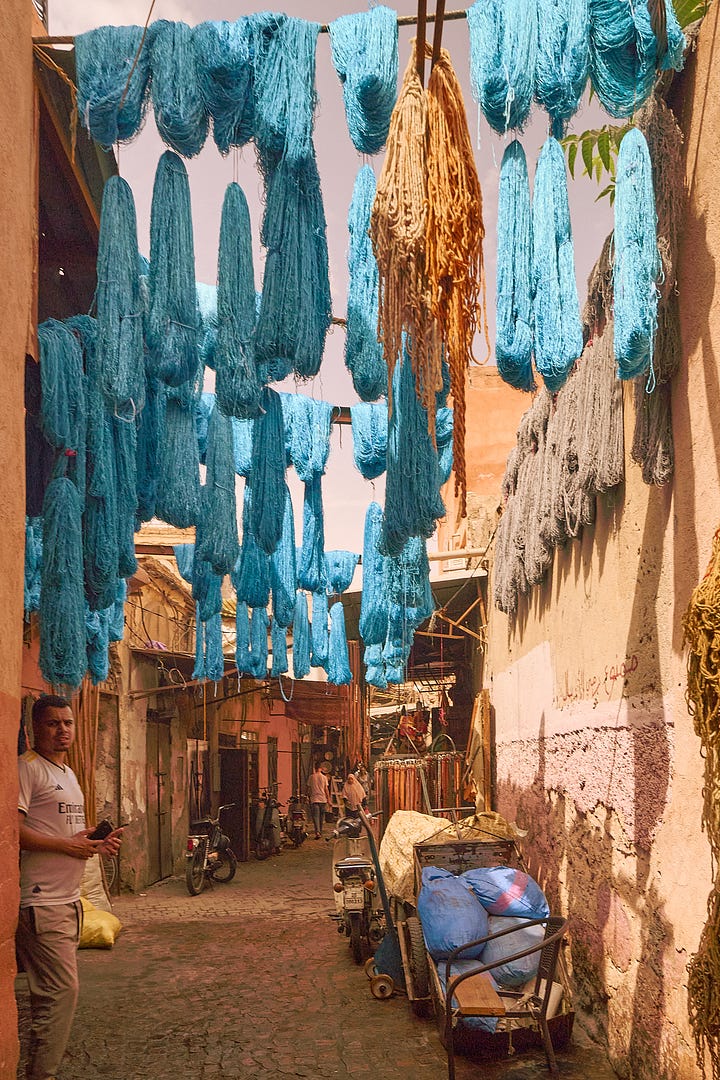
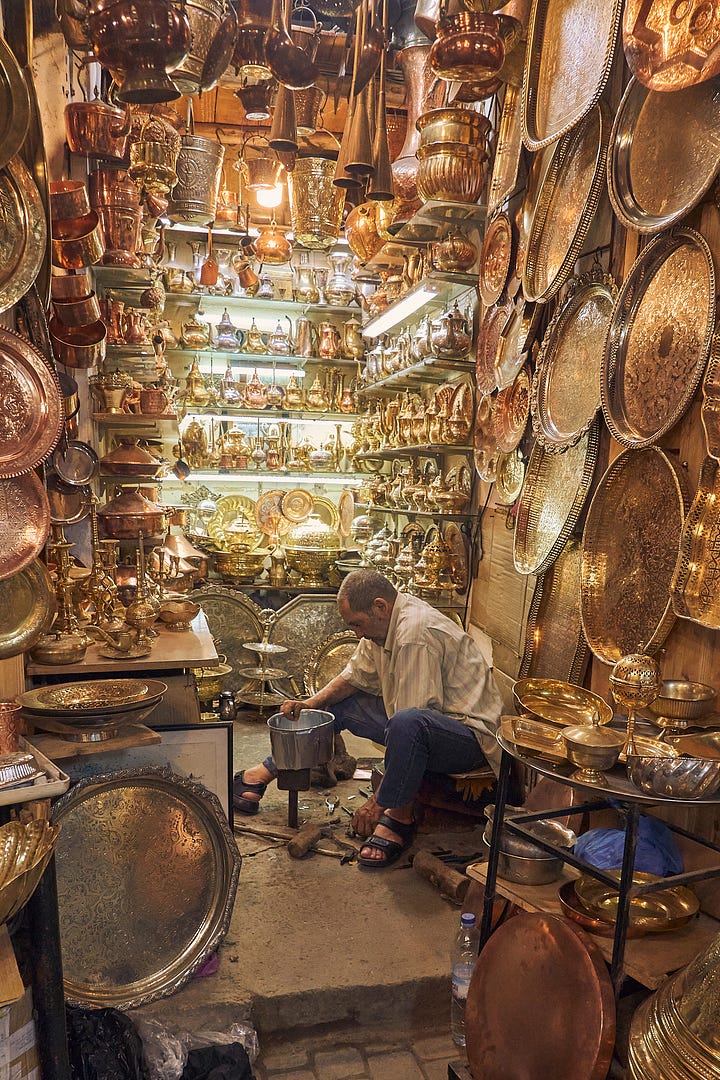
6. Seeing it with my own eyes
This was the first time I read this book after visiting Morocco. The description of the medinas of Tangier hit differently.
“All around the market there were people coming and going, shouting, yelling, buying. There were rugs next to hazelnuts and there was lettuce being sold next to copper cups and coins. Strange chants sounded multiple times a day, men held hands, and veiled women walked the streets.”
It is one thing to read about the world (like the Englishman in the book), but another to go see it, to immerse yourself and learn from it (like Santiago does). Wisdom is shifting from seeing the world as strange or frustrating to simply seeing it as new. It’s going from victim of a thief to a traveler in search of treasure and adventure.
7. Fear of leaving the familiar
When Santiago realizes he could be on another continent in a foreign land just by selling one of his sheep… he starts to panic. This dream, suddenly within reach, seems very scary. The crystal merchant feels the same about going to Mecca: he has the means, but is afraid of achieving the dream and having nothing else to dream toward. It’s the danger of staying in our comfort zone, even when our dream is within reach.
8. One decision can change everything
In the span of one day, Santiago goes from waking up with his sheep thinking he might stay and marry the merchant’s daughter… to meeting a gypsy dream interpreter, talking with a king, selling his sheep for gold, taking a boat to another continent, being in a new country with a different language and customs, getting robbed, and meeting the crystal merchant. In life, sometimes one decision can change everything in the blink of an eye.
9. Following the omens
The person who first interprets his dream is the old gypsy woman. She only interprets dreams, she doesn’t tell Santiago what to do. This reminds me of a tarot reading I experienced in Paris. By chance, I contacted the woman after seeing a poster for a unique deck that wasn’t sold anywhere else. She happened to be flying in that night from Beirut and I met her that same evening. She didn’t give me answers, but the reading revealed omens: a bull, a lion, and red carnations. Signs, sometimes obvious, sometimes hidden, that pointed toward a future I would later experience months later: Spain. Life is full of these small, magical connections. proof that mysticism isn’t just in books; it can be in the real world too, if we are open to receiving it.
10. Alchemy as the chemistry of life
In Spanish, “alchemy” is alquimia, derived from the Arabic al-kimiya. I’ve come to interpret alchemy as the chemistry of the human psyche, maybe even of our Personal Legend. How it changes, how we change it, how others change us.
Alchemy is the concoction we become when we mix our childhoods, travels, careers, challenges, love stories, thieves, friends, coincidences, and choices. Alchemy is the creation of all of those things into a cocktail that makes us uniquely us. Alchemy is the chemistry of life. The spiritual in physical form.
11. Beginner’s luck and the final test
When we are seeking our Personal Legend, our search always begins with the principle of beginner’s luck and ends with a final test. Right before achieving our dream, the world tests us. Not because it is cruel, but to remind us that the real treasure is the lessons, wisdom, and experiences we’ve gathered along the way. This is the toughest moment, and the one where most people quit.
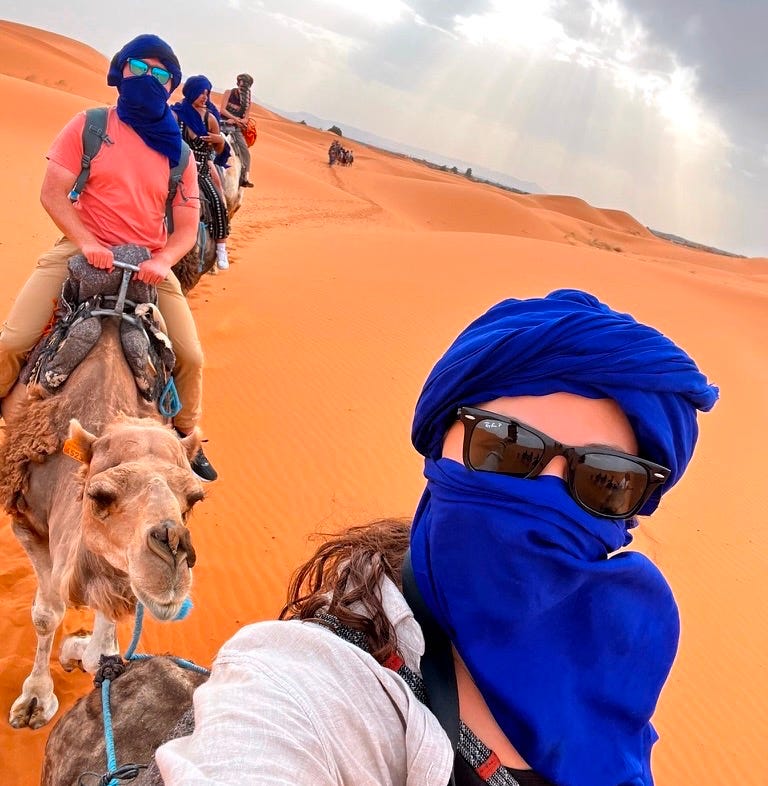
One Last Omen
May 2025: We mounted the camels just as the sun began to sink and wind began to roar. As our caravan left the town of Merzouga and into the heart of the dunes, the stranger riding the camel behind me said, “This sounds cheesy, but this feels like we stepped straight into The Alchemist. Not sure if you’ve read that book.” I cracked a smile behind my Amazigh headscarf, feeling the story come alive around us.
And maybe that’s why it feels destined that my own summer began in Morocco and ended in Spain, just like Santiago’s path. That the guy riding the camel behind me and mentioned The Alchemist, was actually living in Valencia, Spain, the same city I visited 3 months later, and where my cousin coincidentally gifted me the book. The same place my tarot card omens alluded to.
But like Santiago, I didn’t return home with gold in my backpack, but with something greater: the alchemy of detours, treasure of strangers turned friends, new omens, and lessons that changed me along the long way home. Now that I’ve read the book in English and Spanish, I can say it is not the same book and I am not the same reader.
“What you seek, is seeking you.” —Rumi



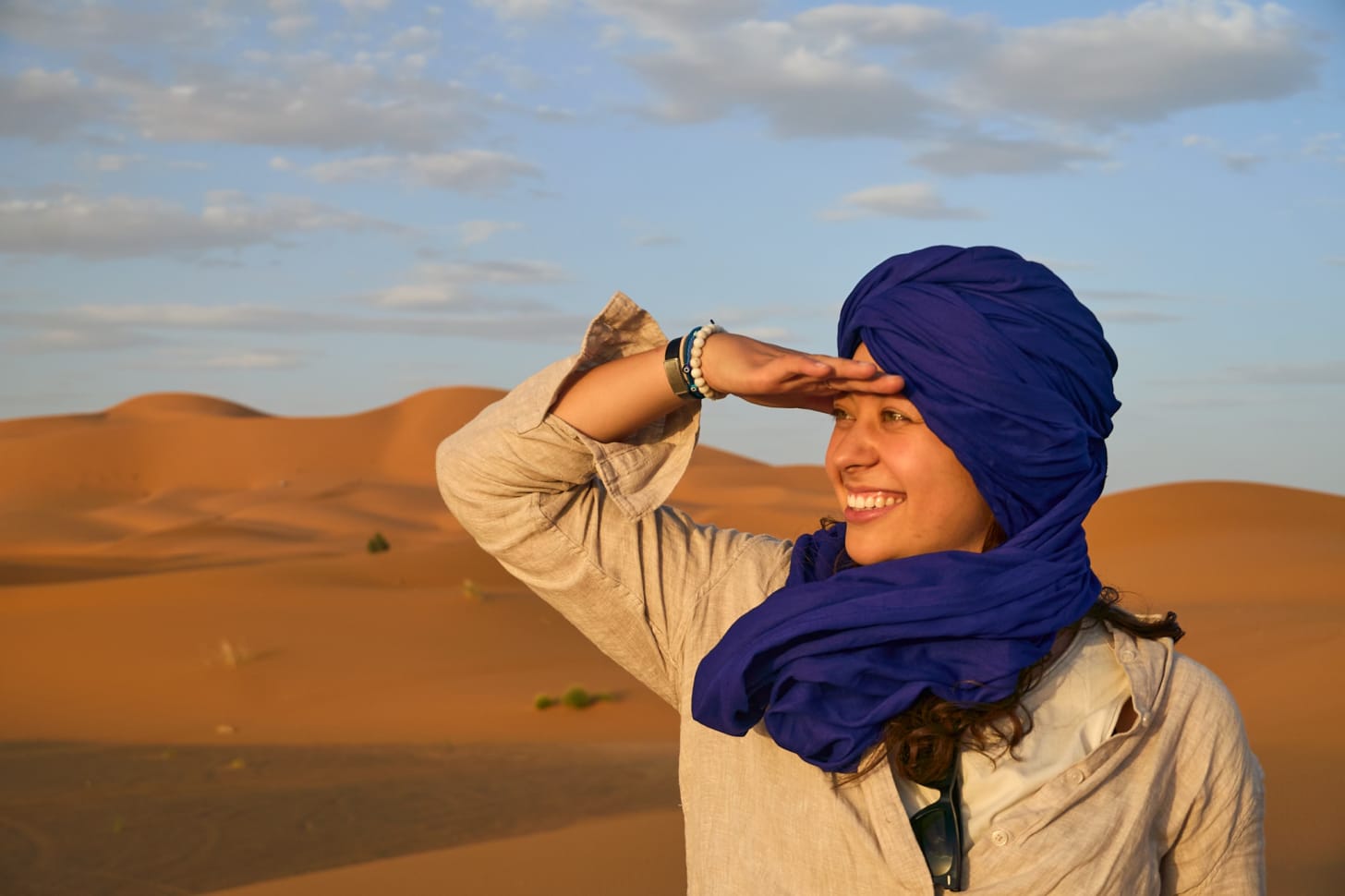
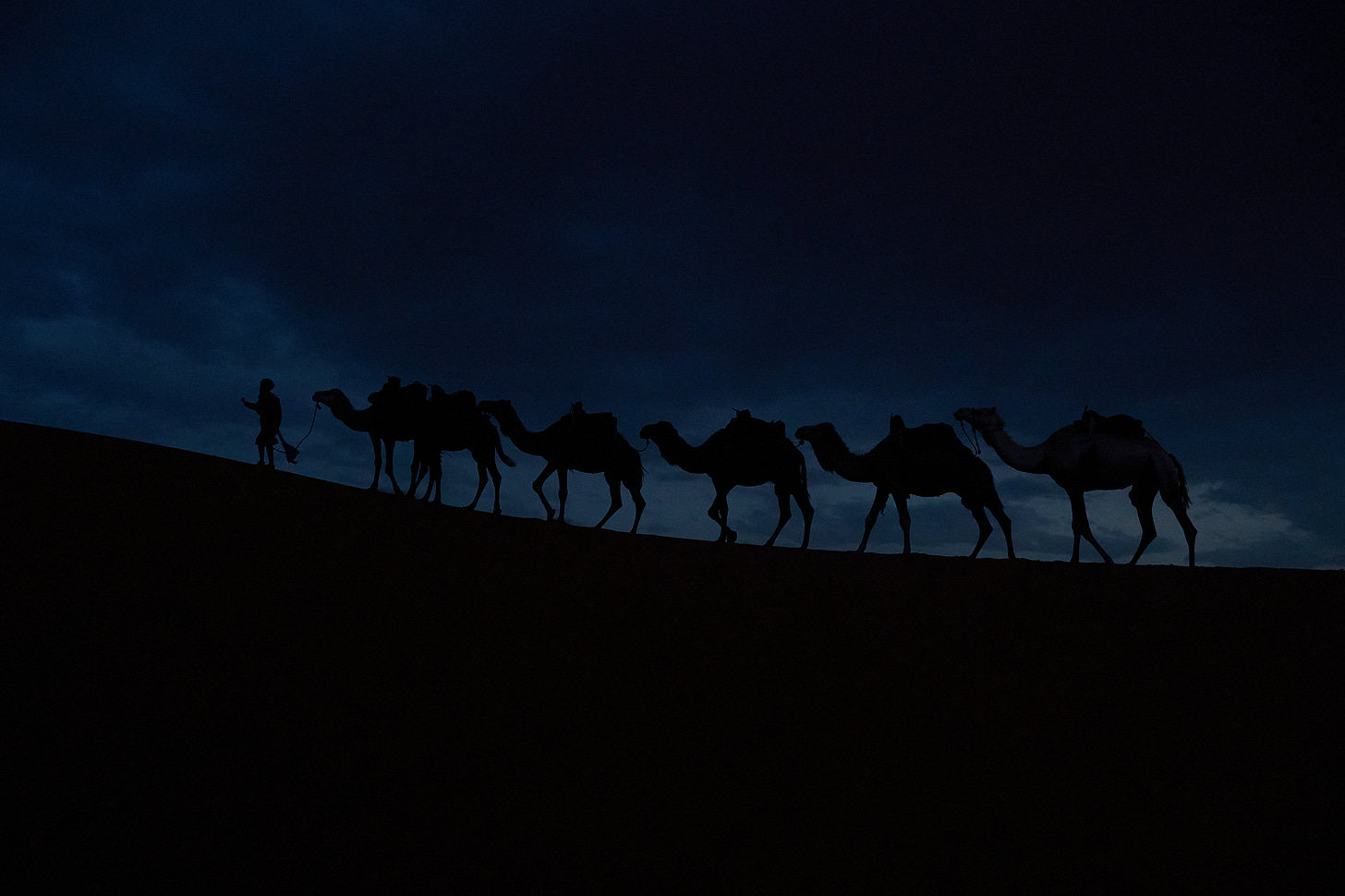
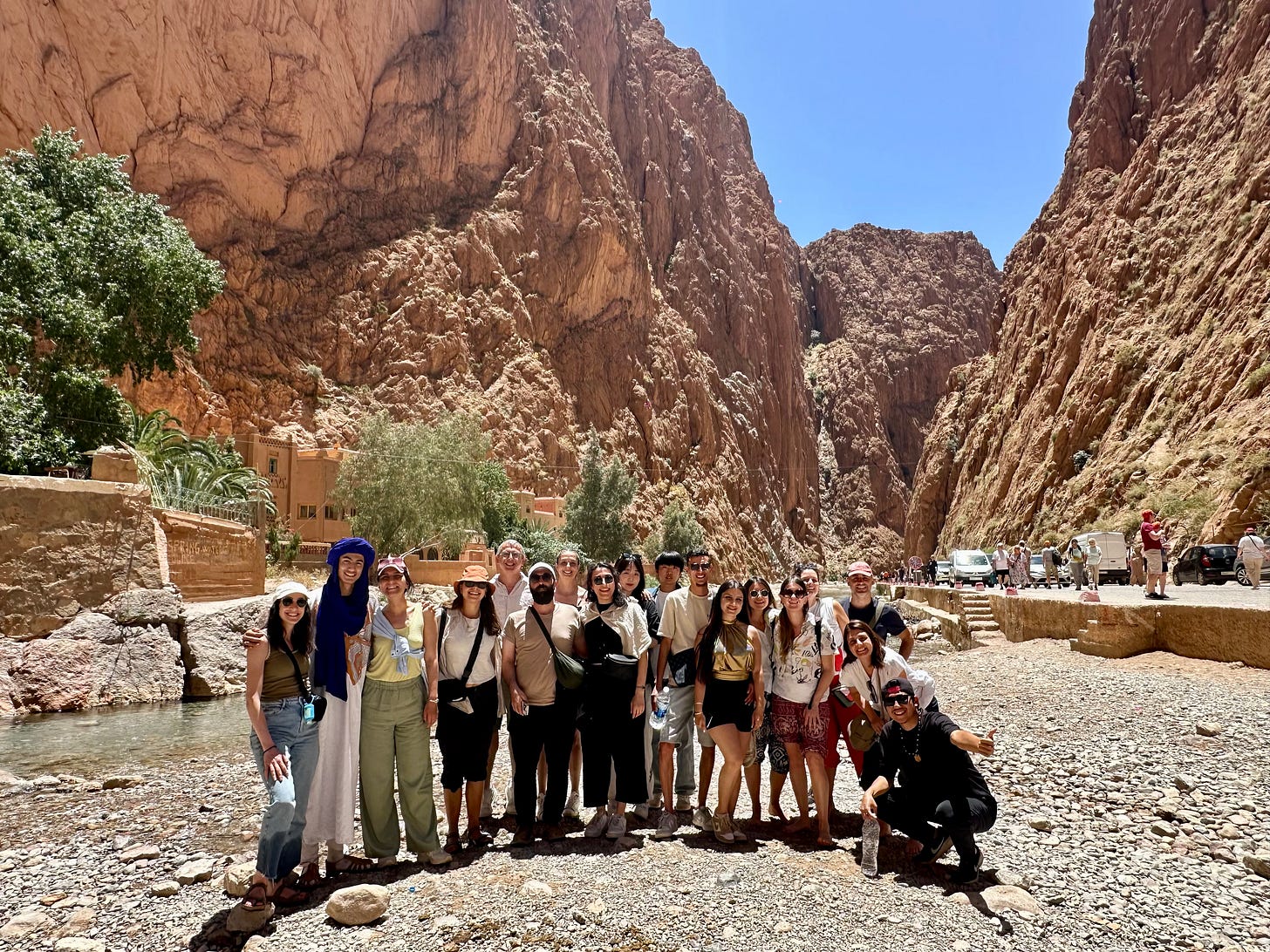
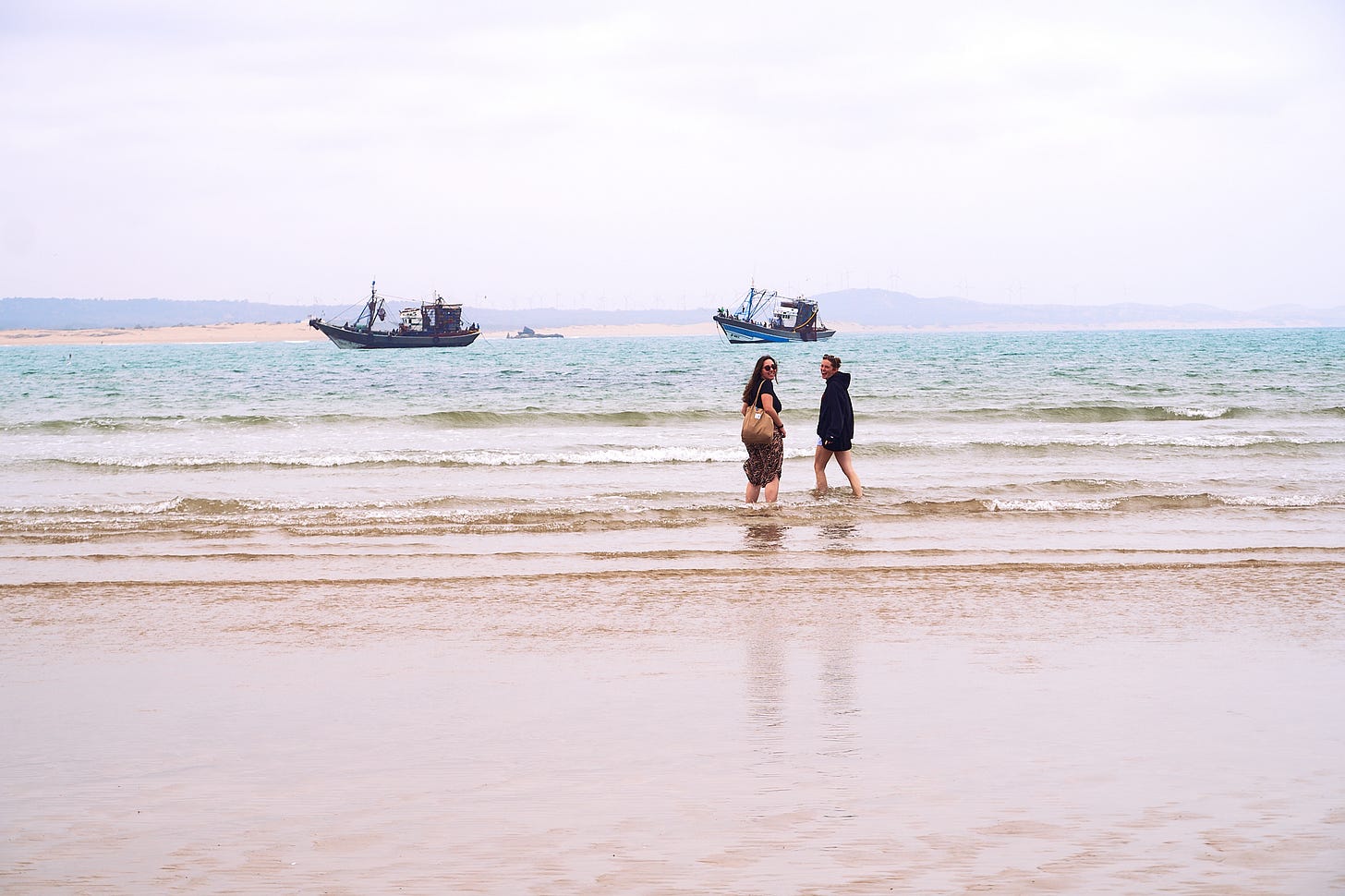
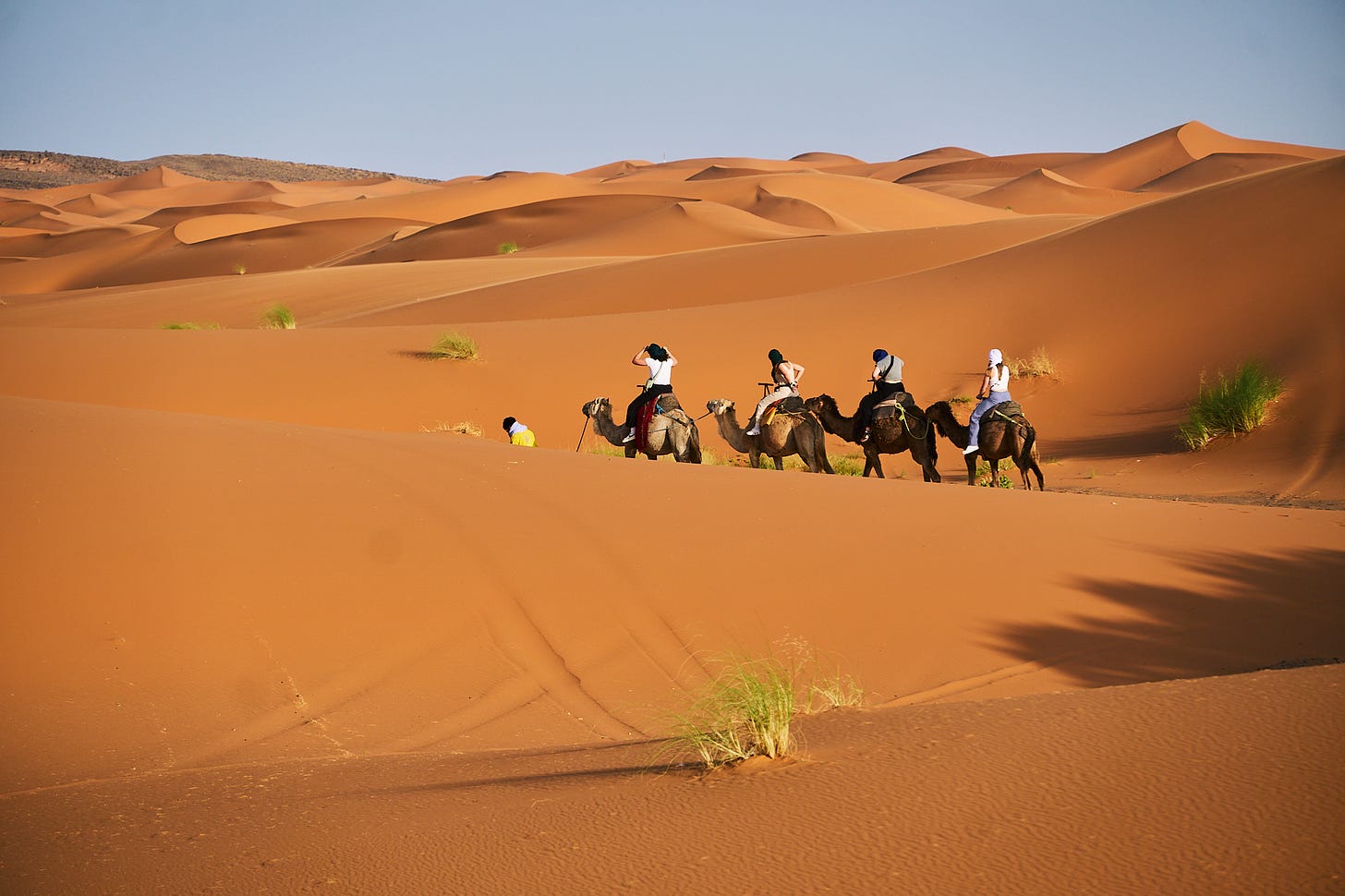
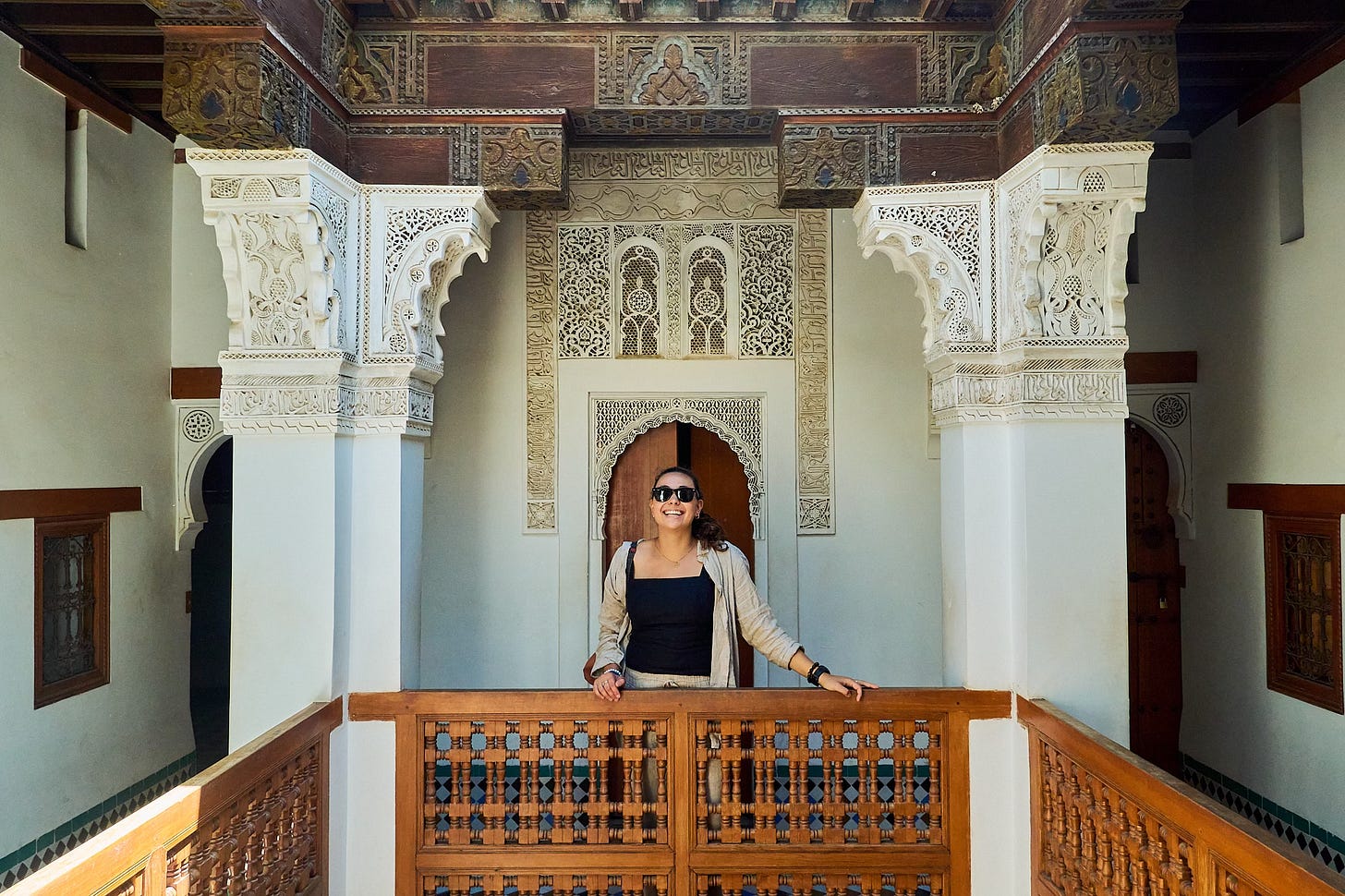
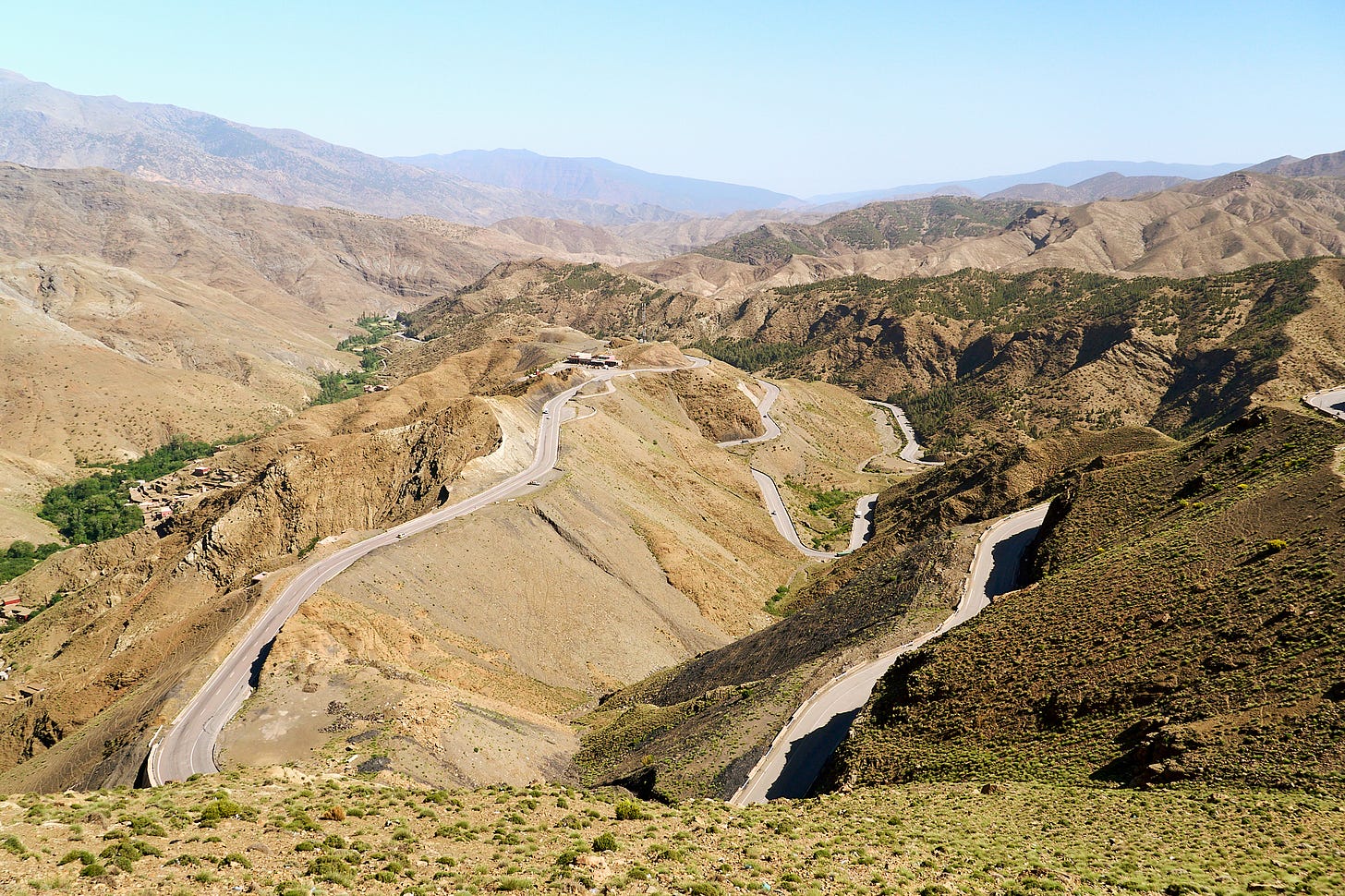
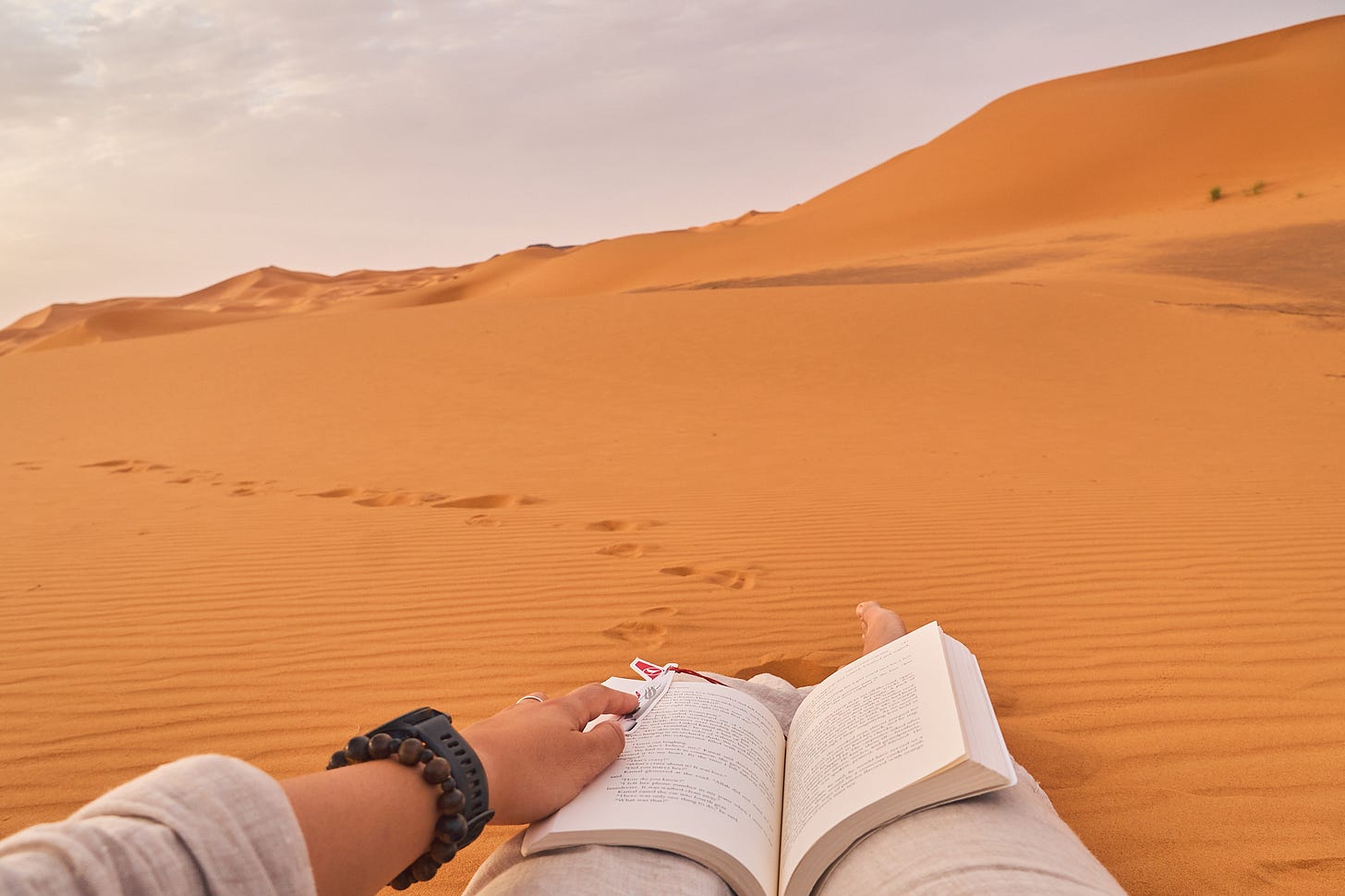
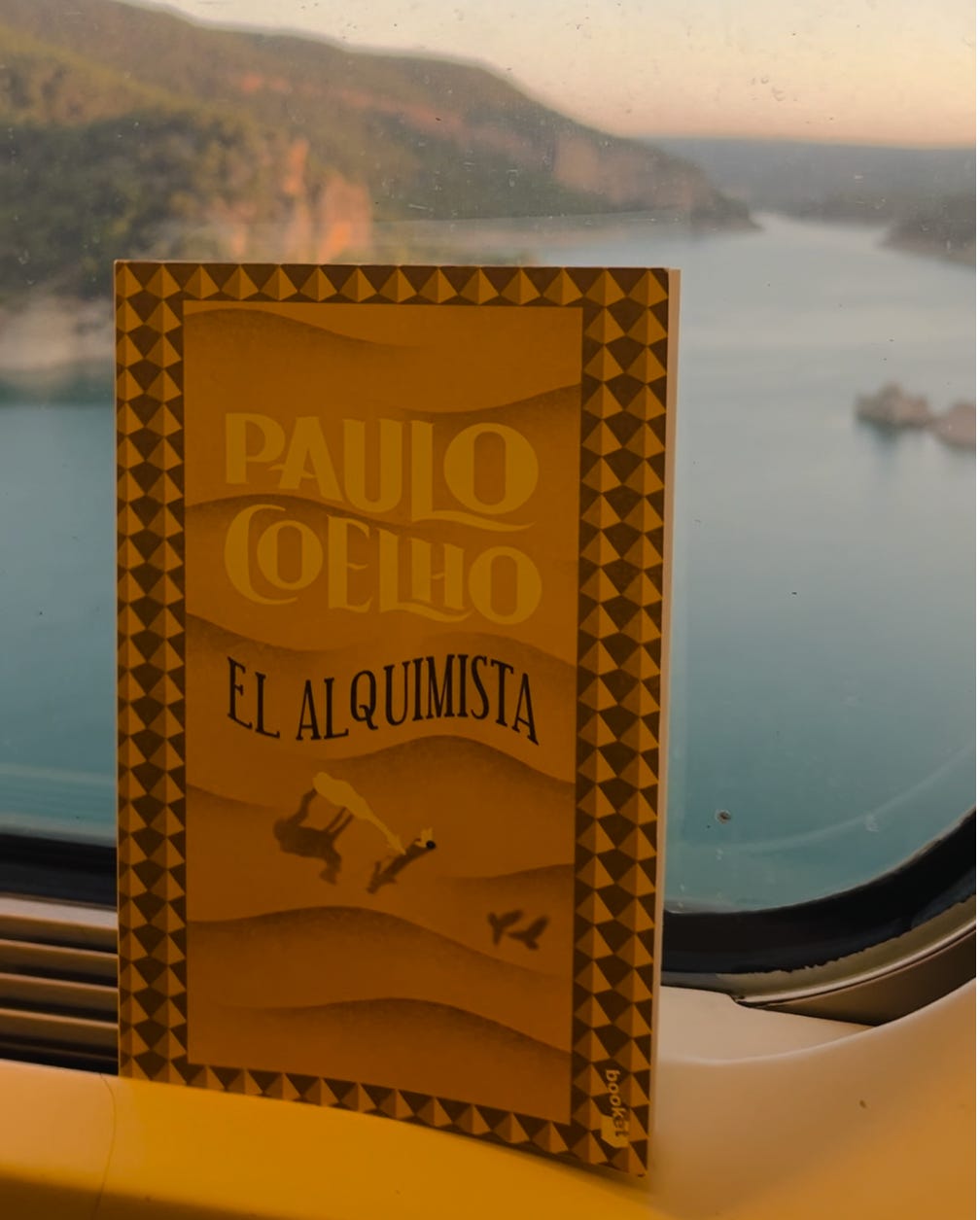
Love this! Maybe it’s a sign for me to finish reading the book haha 😆
Interesting insights and connections. Knowing that The Alchemist is such a meaningful book to you, I am reading it again. Your photographs are a beautiful accompaniment. The desert sands are a much richer color than expected. We are fortunate to be able to accompany you. Your journey is a part of my journey. 🙏P.S. I will send you an email soon. I have been a little distracted and lazy. 😎